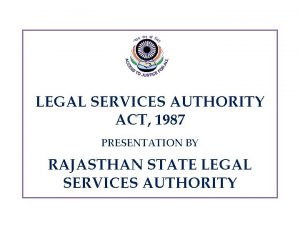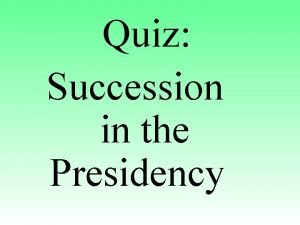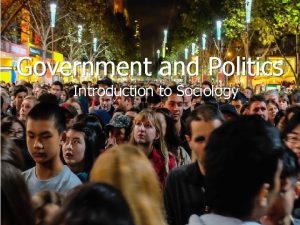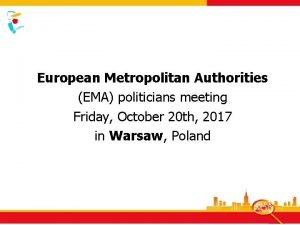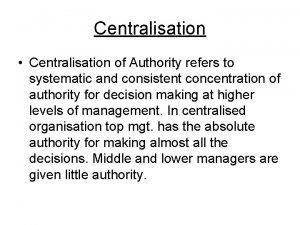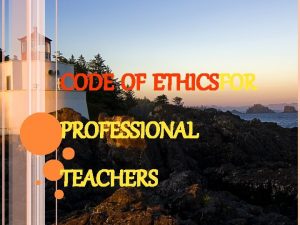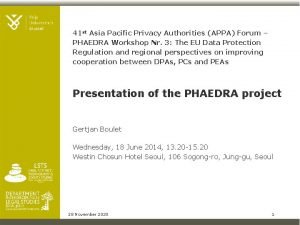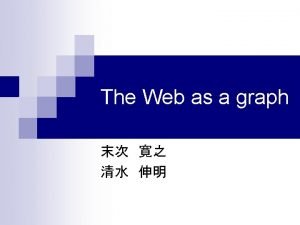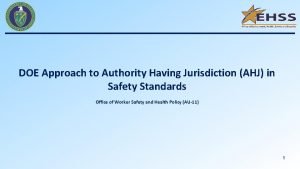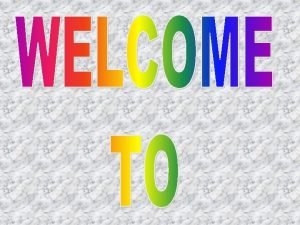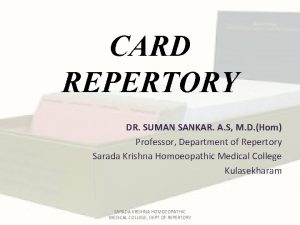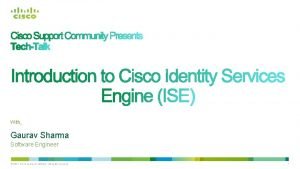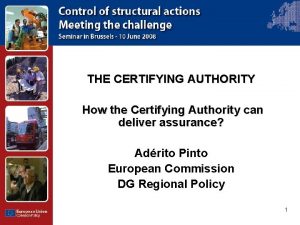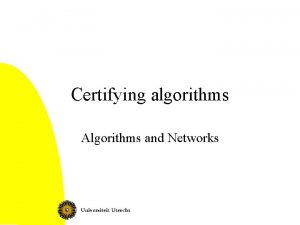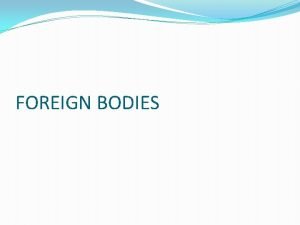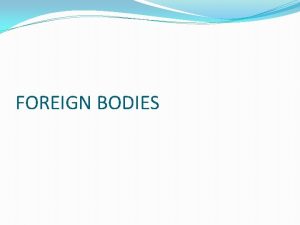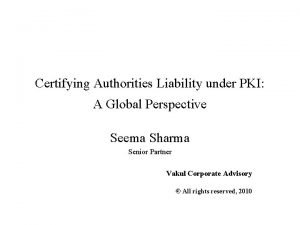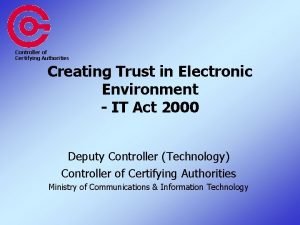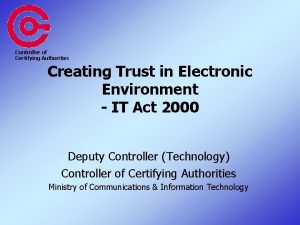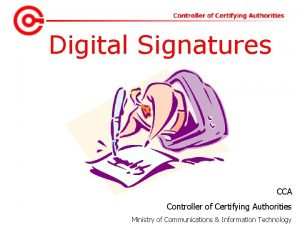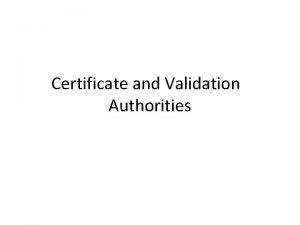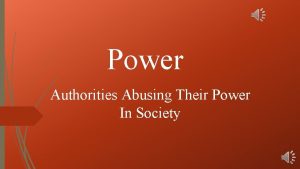Recognition of Foreign Certifying Authorities Vakul Sharma Vakul














- Slides: 14

Recognition of Foreign Certifying Authorities Vakul Sharma © Vakul Corporate Advisory, 2014

Leap of faith

• Recognizing “Foreign Certifying Authorities” by two statutory instruments: “Information Technology (Recognition of Foreign Certifying Authorities operating under a Regulatory Authority) Regulations, 2013”* “Information Technology (Recognition of Foreign Certifying Authorities not operating under any Regulatory Authority) Regulations, 2013”* * April 6 th 2013

• Foreign CA means a CA other than one licensed to issue a DSC……. whose installed facilities and infrastructure associated with all functions of generation, issue, and management of DSCs are located outside India [Regulation 2(1)(d)]

• Recognised Foreign CA means a “foreign CA” who has been granted under these regulations pursuant to section 19 of the Information Technology Act [Recognition of foreign CA].

• Foreign CAs will have the same protection of law as it has been provided to the Indian CAs under the Information Technology Act, 2000

Deemed Recognition operating under a Regulatory Authority • A foreign CA deemed as recognised if it has been authorised to issue DSCs by a recognised Regulatory Authority established under the laws of a country other than India. [Regulation 3 A(2)]

Recognition of Foreign Certifying Authorities operating under a Regulatory Authority is based on: • Principle of reliability & reciprocity

• Controller of Certifying Authority (CCA – India) to enter into a Memorandum of Understanding (Mo. U) with each recognised Regulatory Authority* • Reliability assessment for equivalence *India has signed Mo. U with South Korea.

Recognition not operating under a Regulatory Authority • Any Foreign CA may apply to Controller for recognition; it may require to submit following details, including: • A Certificate Practice Statement (CPS) • A statement for the purpose & scope of anticipated DSC technology, management, or operations to be outsourced • Certified copies of the business registration & license of foreign certifying authority that intends to be recognised • Audit report of infrastructure • Maintenance of local office • Fee of USD 25, 000 • Issuance of recognition within 4 weeks

Global Business Model

• The idea is to provide seamless authentication, message integrity, non-repudiation, & accessibility across jurisdictions facilitating ecommerce* & e-Governance • Time to come out of ‘cocoon’ existence (DSCs are never meant to be localized but glocalized) * UNCITRAL Model Law on E-commerce (Resolution A/RES/51/162 adopted by the General Assembly of UN on 30 th January 1997.

• Global business model based on ‘cross certifying authorities’ acting as ‘trusted third parties’ has all the ingredients to revolutionize online trust - from authentication to payments to service delivery

Thanks vakul@vakulcorp. com © Vakul Corporate Advisory, 2014
 Cremation form geeky medics
Cremation form geeky medics Here you are too foreign for home
Here you are too foreign for home Importance of lok adalats
Importance of lok adalats Clarisse is jailed by the authorities for her beliefs.
Clarisse is jailed by the authorities for her beliefs. Lds general authorities seniority
Lds general authorities seniority Authority refers to
Authority refers to Fthun
Fthun Authorities refers to
Authorities refers to Code of ethics for professional teachers
Code of ethics for professional teachers Asia pacific privacy authorities
Asia pacific privacy authorities Rieslin hub
Rieslin hub Authorities having jurisdiction
Authorities having jurisdiction Dr pk sharma
Dr pk sharma History and evolution of repertory ppt
History and evolution of repertory ppt Gaurav sharma cisco
Gaurav sharma cisco


